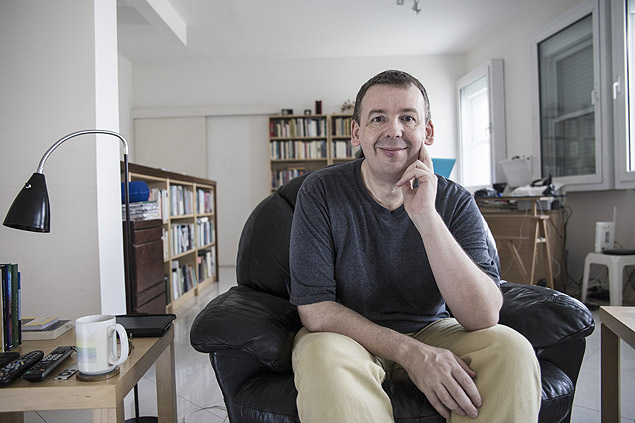On the most recent Outspoken conversation, the Catholic priest, theologian and writer James Alison offered a master class on the theology of natural law and conscience, two topics of interest to all Catholics, but especially for LGBTQ Catholics, who often find themselves confronting arguments that use these concepts against them.
Father Alison is well known for his writings on René Girard, the French thinker, but equally for his insights into the LGBTQ experience in the Catholic Church, which formed the basis for his influential book Fear Beyond Resentment: Fragments Catholic and Gay.
“The notion of natural law is something that is absolutely essential to Christianity,” he said in our conversation, by way of introducing the first topic. But, he says, we have to remember that part of what the Holy Spirit does is make us “participants, on a very small scale, in understanding what creation, which is much more than us, is actually about.”
“The notion of natural law is something that is absolutely essential to Christianity,” he says by way of introducing the first topic.
The Holy Spirit helps us to live out our moral lives not as servants or slaves, but as sons and daughters, people who are now on the “inside,” able to say, “This is what I’m all about.” This moves all of us to the “flourishing” that St. Thomas Aquinas, among others, described.
But Alison noted that natural law has, unfortunately, in some cases been used primarily as a way of restricting people, especially LGBTQ people. In modern times, however, homosexuality is now seen as what Alison calls a “non-pathological minority variant in the human condition.” And from the moment it becomes clear that some people are bearers of this minority variant, “which is neither good nor bad,” their way of being is “going properly to flourish starting with that, instead of in spite of that.”
Turning to conscience, Alison returned to the idea that we are sons and daughters of God. “I no longer call you servants…but friends,” as Jesus says in the Gospels (Jn. 15:15). Alison sees this as a fundamental insight. We are, all of us, in the process of becoming children of God. This doesn’t mean that we are perfect, but that we are able to learn to do things wrong, then to do things better—much as a child might do under the care of a loving parent.
This is the difference between how a slave behaves (who operates only under a strict series of rules) and a beloved child behaves (who acts within a greater freedom to learn). We learn this path, this way of being and becoming, by being part of the “Great We” of the church.
Much of this has to do with love. “Love turns you into who you really are going to be,” he says. In God’s eyes, “the ‘you who I’m calling you to be’ has to do with how you learn to give yourself away.”
Alison also spoke about what it means for LGBTQ people to encounter “discord” with some aspects of church documents and offers pastoral advice on how natural law and conscience can be understood in this context.
Be sure to watch the whole video for this influential theologian’s insights into these topics and many more.




